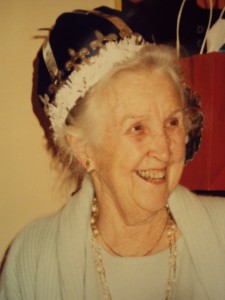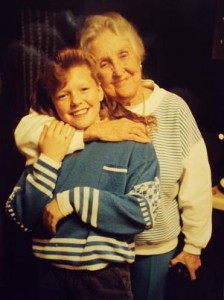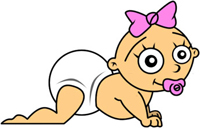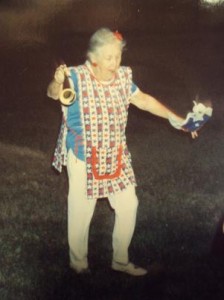Last week I enjoyed writing about my mom, thankful for the upright heritage she left behind. Judging by worldly standards, Mom died an old lady of 92 who never worked outside her home or accomplished anything of note. Strangers might have said, “Hers was a wasted life.”
 But those of us who knew her, know otherwise. Before Mom died, we used to joke she’d have a big funeral, and we were right. The crowds came in droves, filling the large room where her body lay, spilling out into the halls and out the front door. The funeral director came running just before the service began with alarm on his face. “Why didn’t you tell me!” he said.
But those of us who knew her, know otherwise. Before Mom died, we used to joke she’d have a big funeral, and we were right. The crowds came in droves, filling the large room where her body lay, spilling out into the halls and out the front door. The funeral director came running just before the service began with alarm on his face. “Why didn’t you tell me!” he said.
What he meant was, “Why didn’t you tell me this woman was popular? We don’t usually see this for old ladies like her!”
As we greeted guests, Mary and I noticed how most were from the generations behind Mom, people our age and younger. These were the “children” she’d loved and influenced throughout her life, loving all of them as her own. Rather than wasting her life, she’d used it for lofty purposes, leaving footprints that led them all to Jesus.
Here’s an important question for each of us still marching along on this side of our funerals: “Where will my footprints lead?”
 Steve Green’s song “Find Us Faithful” says,
Steve Green’s song “Find Us Faithful” says,
“As those who’ve gone before us,
Let us leave to those behind us
The heritage of faithfulness passed on through godly lives.”
God gives us a simple but effective way to leave footprints others will find it worthwhile to follow: just track the steps of Jesus.
I n Mom’s last year of life, she continually had her nose in a Bible. One day I asked if she’d looked at the biography of Julia Child I’d just given her, or her new book about hymn authors. She said, “Honey, I don’t have any time for those. I’m studying for my finals.”
n Mom’s last year of life, she continually had her nose in a Bible. One day I asked if she’d looked at the biography of Julia Child I’d just given her, or her new book about hymn authors. She said, “Honey, I don’t have any time for those. I’m studying for my finals.”
Despite not owning a trophy case or being written up in periodicals, Mom finished well.
“After all our hopes and dreams have come and gone
And our children sift through all we’ve left behind,
May the clues that they discover and the memories they uncover
Become the light that leads them to the road we each must find.” (Steve Green)
“God called you to do good, even if it means suffering, just as Christ suffered for you. He is your example, and you must follow in his steps.” (1 Peter 2:21)




